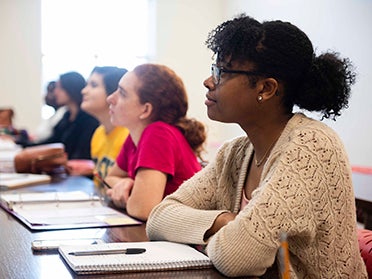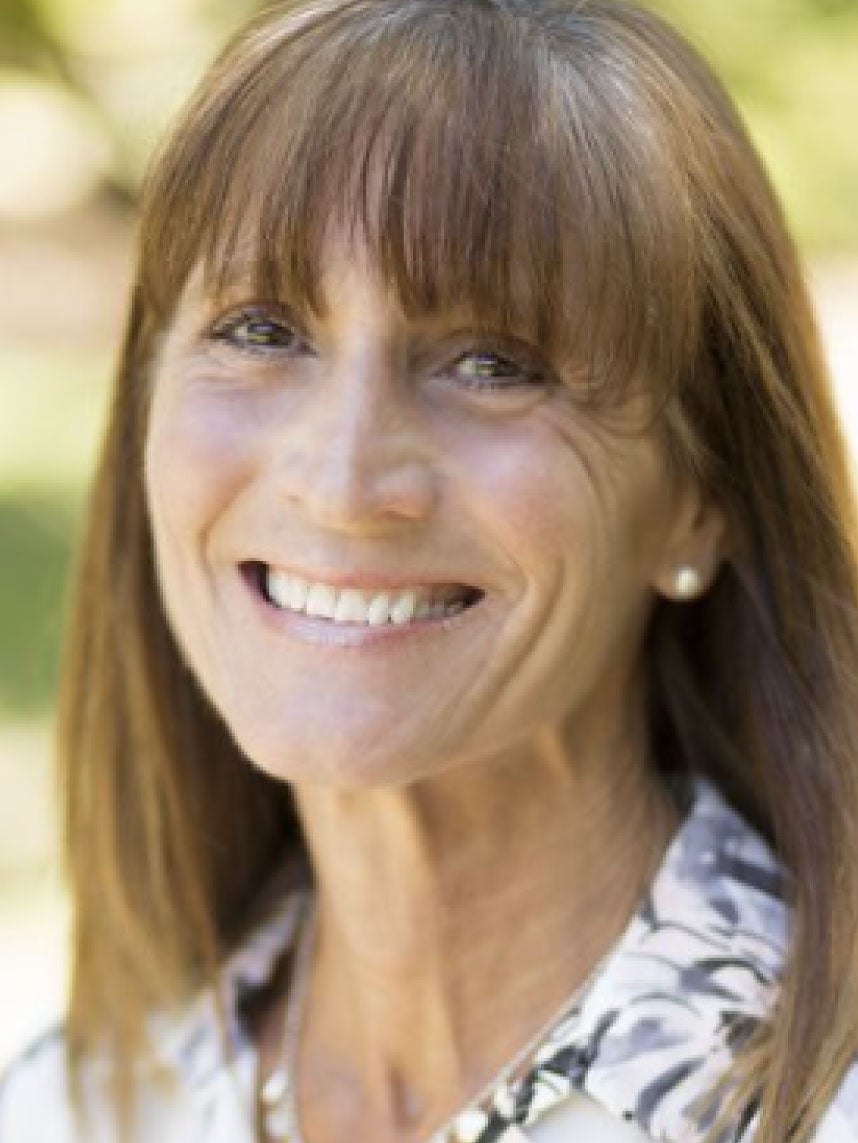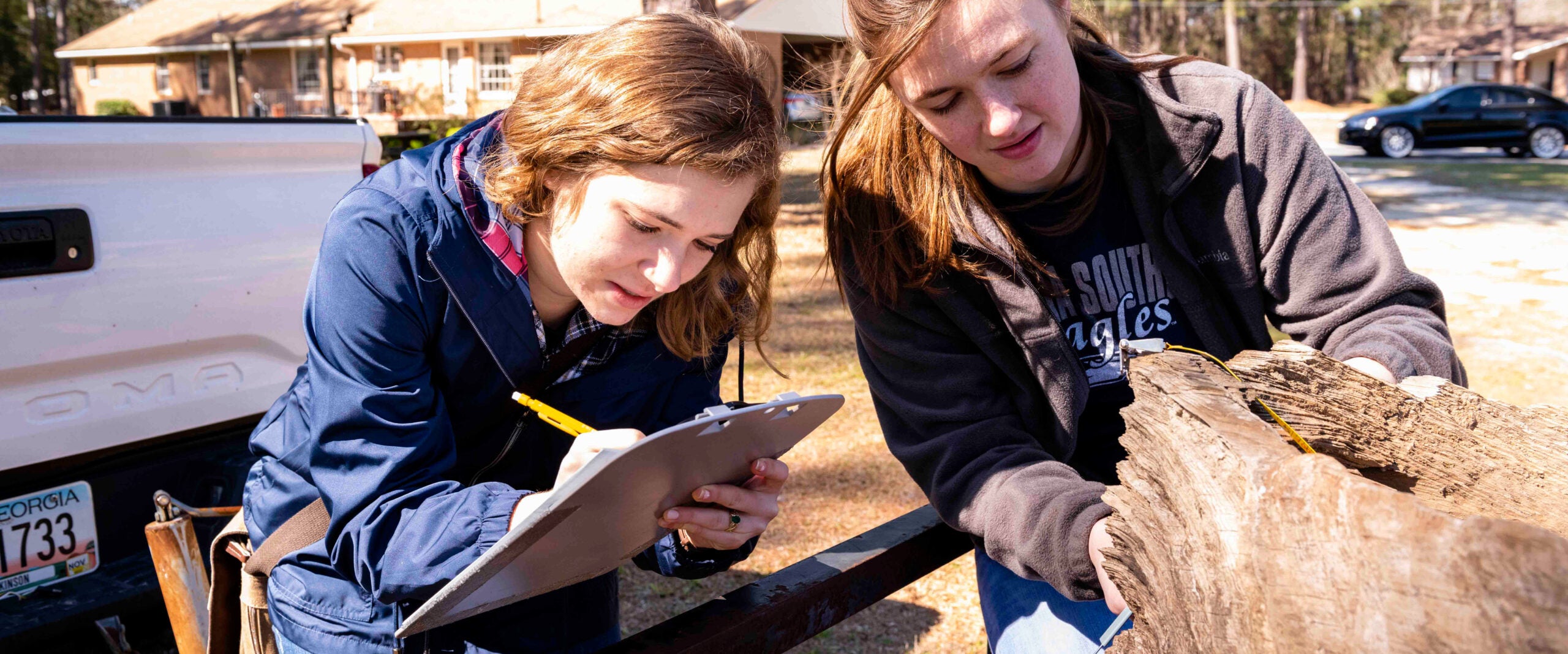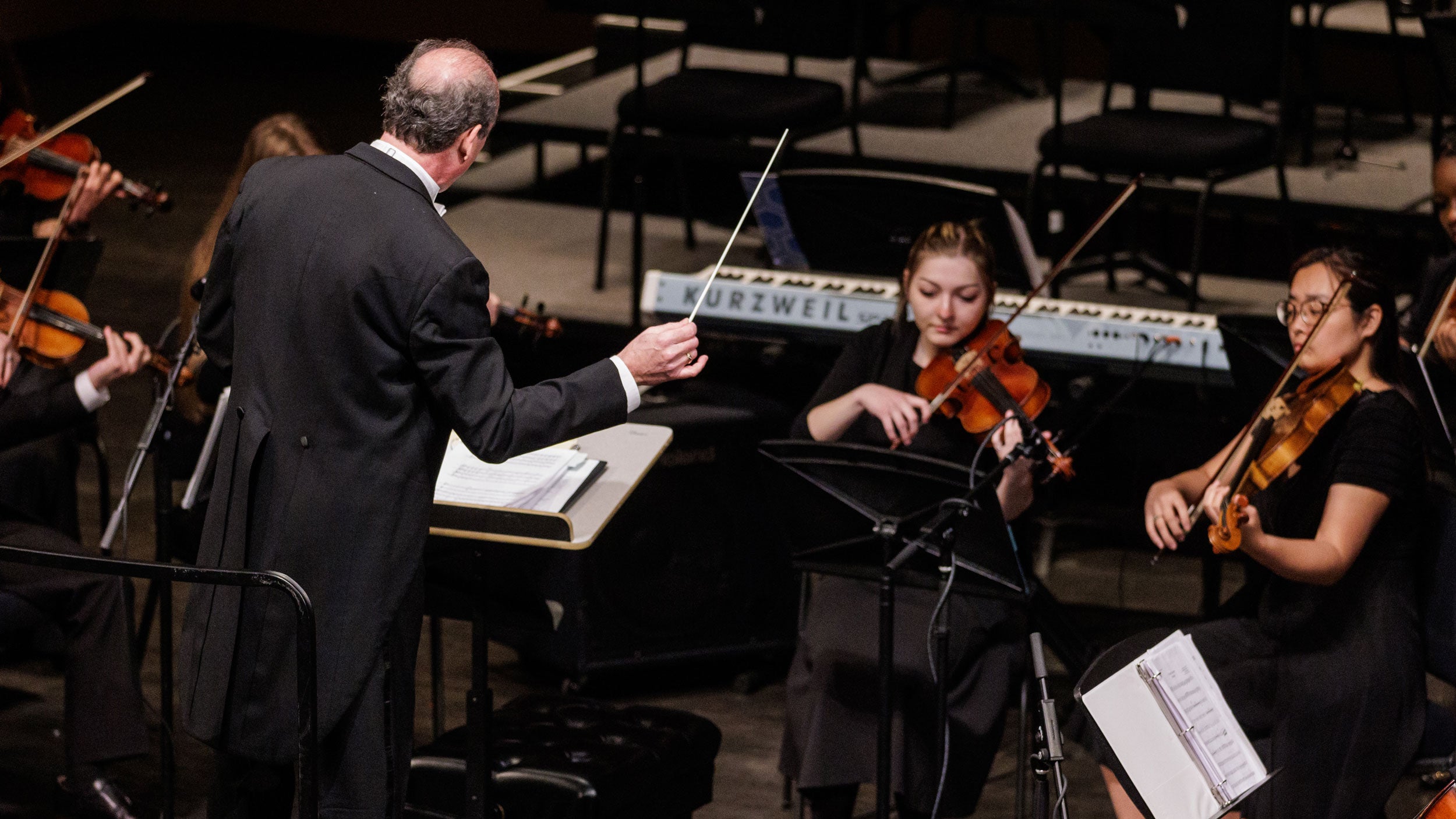Engage with diverse literary traditions and theoretical perspectives while exploring the intersections of language, culture, and society.
Locations
- Statesboro Campus
Why Get your Master’s in English at Georgia Southern?
In our comprehensive master’s program, you’ll engage with diverse literary traditions and theoretical perspectives while exploring the intersections of language, culture, and society.
Our curriculum not only emphasizes rigorous academic training, it also offers distinctive opportunities for hands-on learning and professional development through collaborations with esteemed organizations like the Center for Irish Research and Teaching and the Gullah Geechee Cultural Heritage Center.
At Georgia Southern, you’ll be part of a vibrant academic community where faculty members are dedicated to mentoring students in their professional journeys. With options for full-time and part-time study, our program is adaptable to your needs, allowing you to balance your education with other commitments. Also, competitive assistantships provide financial support while you gain valuable experience in teaching and research. By earning your master’s degree in English from Georgia Southern, you’ll develop the skills necessary to excel in various fields, including education, publishing, nonprofit organizations, and more, while enhancing your capacity for critical thinking and effective communication.
Ready to Apply?
What Can You Do With a Master’s Degree in English?
By advancing your skills in critical analysis, research, and professional writing, a Master’s degree in English opens the door to a rewarding career path.
English graduate students take advantage of many distinctive opportunities for learning and professional development with both internal and external organizations including:
The Center for Irish Research and Teaching
The Gullah Geechee Cultural Heritage Center
Women’s Gender and Sexuality Studies
The British Commonwealth and Postcolonial Studies Conference
The American Literature Association symposia and annual conference
Georgia International Conference on Information Literacy
The Journal of Commonwealth and Postcolonial Studies
The Georgia Southern University Writing Centers
Whether you aim for a career in education or industry, a Master’s in English from Georgia Southern prepares you to excel in an ever-evolving landscape.
Where our graduates work:
- Academia
- Publishing
- Journalism
- Editing
- Creative agencies
- Marketing firms
- Entertainment and media
What our graduates do:
- Writer
- Poet
- College instructor
- Journalist
- Editor
- Public relations
- Marketing
What You’ll Learn
Engage in an immersive exploration of advanced literary studies, honing your critical thinking and analytical writing skills.
Your master’s coursework will cover a broad spectrum of topics, from literary theory to cultural studies, equipping you to analyze texts in their historical and social contexts. Prepare to delve into specialized areas such as postcolonial studies, women’s gender and sexuality studies, and Irish literature, fostering a deep understanding of diverse voices and perspectives.
Throughout your graduate studies, you will participate in collaborative projects and have opportunities for professional development through partnerships with organizations like the The British Commonwealth and Postcolonial Studies Conference and the The Journal of Commonwealth and Postcolonial Studies.
When you complete your master’s in English, you will have refined your research and writing capabilities, preparing you for a range of career paths in education, publishing, and advanced academic pursuits.
Build Your Experience
Here you’ll find all the resources, materials, and info you need for a seamless graduate experience.

Resources



After Your Master’s
If you choose to continue with graduate work beyond your MA, you should know about a policy adopted by the Council of Graduate Schools:
“Acceptance of an offer of financial support (such as a graduate scholarship, fellowship, traineeship, or assistantship) for the next academic year by a prospective or enrolled graduate student completes an agreement that both student and graduate school expect to honor. In that context, the conditions affecting such offers and their acceptance must be defined carefully and understood by all parties. Students are under no obligation to respond to offers of financial support prior to April 15.” For more information, see the full policy.
Take Action
Follow these steps to complete the Georgia Southern application:
- Create an application account.
- Complete our online application using the PIN you received after creating your application account.
- Once complete, pay the $30 application fee or upload a valid fee waiver. Previous Georgia Southern applicants and dual enrollment students do not need to pay the fee.
You can check your application status at My.GeorgiaSouthern.edu/admissions three days after completing your application. This page contains live information about your admission status, including a checklist of missing documents we need to make a decision.
Apply to the Master's program Transfer to Georgia SouthernAll materials for admission should be sent to the Office of Graduate Admissions unless otherwise indicated.
- Completed requirements for the Bachelor’s degree in a college or university accredited by the appropriate regional accrediting associations.
- A 3.0 (4.0 scale) cumulative grade point average or higher on all undergraduate work.*
- Two letters of recommendation by persons familiar with the applicant’s academic experience.
- A sample of the applicant’s scholarly writing, 8 pages or longer.
- Students intending to focus on creative writing should also include: 10-15 pages of poetry, single-spaced, with each poem starting on a new page OR up to 25 pages of prose, double-spaced, with each creative nonfiction or fiction piece starting on a new page.
- Statement of Purpose (250-500) words. This statement should:
- articulate the applicant’s research or creative interests and goals
- indicate how the applicant’s experience has prepared them for successful graduate work in their area of interest
- explain why and how Georgia Southern’s English MA program meets the applicant’s interests and goals
Transcripts from institutions that are not based in the United States or its territories must be evaluated by a NACES-accredited evaluation service (www.naces.org/members). The evaluation must include a course-by-course evaluation with a GPA, and it must show you have earned the US-equivalency of the required level of degree. Official or unofficial international transcript evaluations are required for the application to receive an official decision. This requirement cannot be waived.
Provisional admission is sometimes possible if a candidate has a 2.75 (4.0 scale) or higher cumulative grade point average on undergraduate college work. Students who do not meet provisional requirements may appeal to a departmental graduate committee for admission.
Faculty Feature
Since 2015, I have hired ALA Executive Assistants, graduate students who assist with the many symposia and conference duties such as overseeing registration and formatting and printing the programs and name badges. On-site registration, on-site responsibilities, after-conference follow up with bills and correspondence that requires hours of paperwork – all of this detailed work is necessary for our Association to run smoothly. This student support, so crucial to the ALA, benefits not only the Association, but the students as well, serving as a valuable recruiting tool. Students have the opportunity to network with scholars in their area of interest, which has led to fruitful research and publishing opportunities. Maegan Bishop, for example, was invited to participate in a 4-week learning and research experience in Mainz Germany during the summer of 2024 after Oliver Scheiding, an Executive Board member of the Society for the Study of the American Short Story, heard her presentation on Adrian Tomine. Our Executive Assistants receive full funding to attend all ALA events and receive generous stipends for their professional work and service. I attend to their travel and lodging arrangements. In turn, they serve as excellent representatives of Georgia Southern and bring positive national attention to our program, our college, and our university.
Dr. Olivia Edenfield

Related Programs

Take the Next Step
Ready to engage with diverse literary traditions at the graduate level? Learn more about getting your Master’s in English at Georgia Southern University.
Contact Us
College of Arts and Humanities
Georgia Southern University
P.O. Box 8142
Statesboro, Georgia 30460-8142
Phone: 912-478-2527
Fax: 912-478-5346
Email: cah@georgiasouthern.edu




